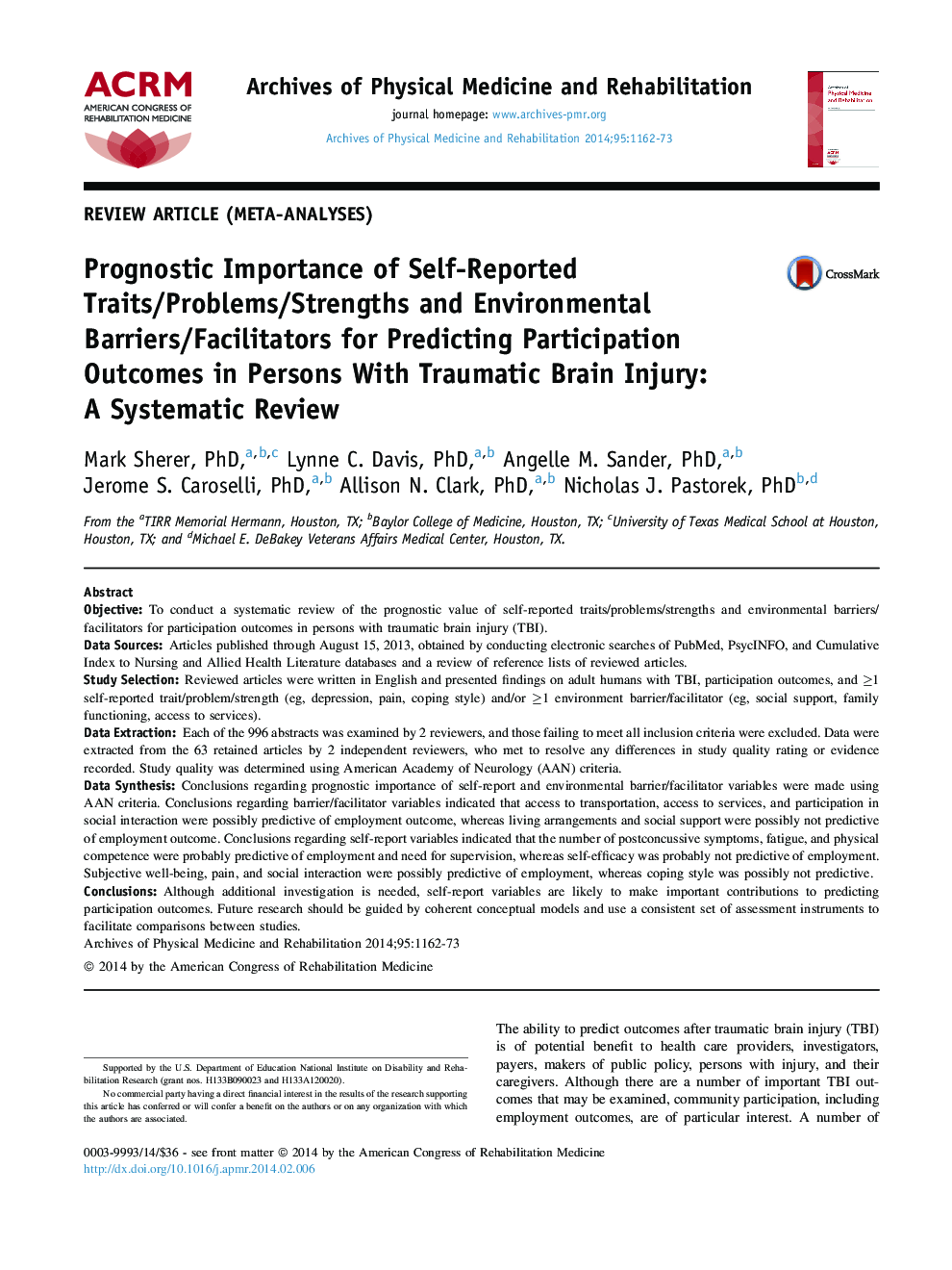| کد مقاله | کد نشریه | سال انتشار | مقاله انگلیسی | نسخه تمام متن |
|---|---|---|---|---|
| 3448945 | 1595696 | 2014 | 12 صفحه PDF | دانلود رایگان |

ObjectiveTo conduct a systematic review of the prognostic value of self-reported traits/problems/strengths and environmental barriers/facilitators for participation outcomes in persons with traumatic brain injury (TBI).Data SourcesArticles published through August 15, 2013, obtained by conducting electronic searches of PubMed, PsycINFO, and Cumulative Index to Nursing and Allied Health Literature databases and a review of reference lists of reviewed articles.Study SelectionReviewed articles were written in English and presented findings on adult humans with TBI, participation outcomes, and ≥1 self-reported trait/problem/strength (eg, depression, pain, coping style) and/or ≥1 environment barrier/facilitator (eg, social support, family functioning, access to services).Data ExtractionEach of the 996 abstracts was examined by 2 reviewers, and those failing to meet all inclusion criteria were excluded. Data were extracted from the 63 retained articles by 2 independent reviewers, who met to resolve any differences in study quality rating or evidence recorded. Study quality was determined using American Academy of Neurology (AAN) criteria.Data SynthesisConclusions regarding prognostic importance of self-report and environmental barrier/facilitator variables were made using AAN criteria. Conclusions regarding barrier/facilitator variables indicated that access to transportation, access to services, and participation in social interaction were possibly predictive of employment outcome, whereas living arrangements and social support were possibly not predictive of employment outcome. Conclusions regarding self-report variables indicated that the number of postconcussive symptoms, fatigue, and physical competence were probably predictive of employment and need for supervision, whereas self-efficacy was probably not predictive of employment. Subjective well-being, pain, and social interaction were possibly predictive of employment, whereas coping style was possibly not predictive.ConclusionsAlthough additional investigation is needed, self-report variables are likely to make important contributions to predicting participation outcomes. Future research should be guided by coherent conceptual models and use a consistent set of assessment instruments to facilitate comparisons between studies.
Journal: Archives of Physical Medicine and Rehabilitation - Volume 95, Issue 6, June 2014, Pages 1162–1173